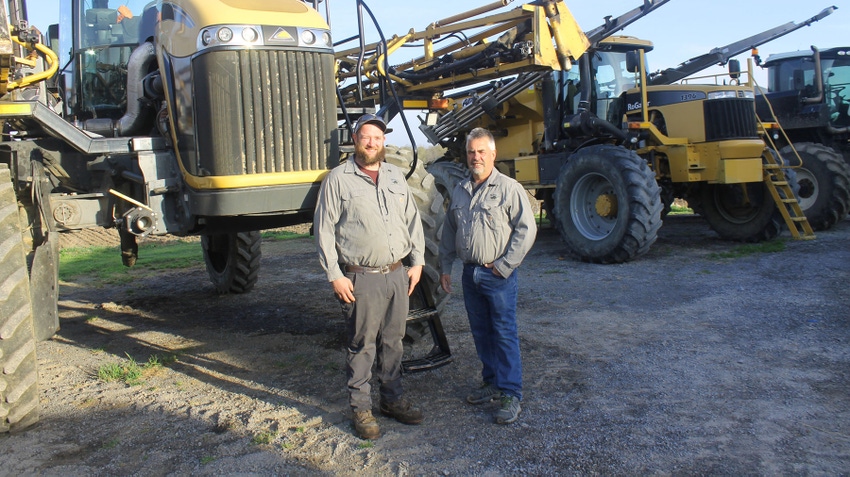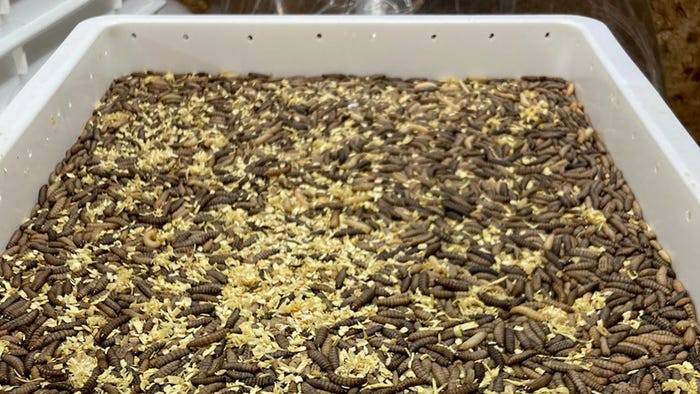May 12, 2023

The Northern New York Agricultural Development Program has announced the development of new protocols that make the use of New York-native persistent biocontrol nematodes for crop pest management easier for farms and custom applicators.
Developed by entomologist Elson Shields and research support specialist Tony Testa, these new protocols include a new liquid-based formulation that requires less water and less sawdust and achieves optimal ventilation and oxygenation with heat and humidity control for the mass-rearing of biocontrol nematodes.
Before this study, the production of these nematodes for field inoculation required holding them in inoculum for 14 days in controlled temperatures. With a shelf life of only three to four days after nematode production was complete, precise planning by the supplier and farmer-applicator was required as there was a limited window to ensure successful field application.
Preliminary small-scale results suggest that this new formulation concentration and shelf life might be increased to as much as 14 to 30 days with minimal technical difficulty.
"This research has expanded the use of persistent biocontrol nematodes as a nature-based method that helps reduce populations of alfalfa snout beetle, corn rootworm and berry weevils that have the potential for costly economic damage, and reached significant milestones in making the application of persistent biocontrol nematodes more convenient for farmers and applicators," says Joseph Giroux, dairy farmer from Plattsburgh, N.Y., and co-chairman of the Northern New York Agricultural Development Program.
The innovate rearing technique, developed by Shields and Testa, allows persistent biocontrol nematode strains to retain their genetic ability to persist in soil for years.
Less-intensive rearing
The researchers successfully used the new formulation to rear persistent biocontrol nematodes for application to 3,350 acres in field trials on farms in Jefferson and St. Lawrence counties in the spring and fall of 2022.
Seven farms participated in the on-farm application trials. Two commercial applicators evaluated the new field delivery and application methods.
"As a result of this Northern New York Agricultural Development Program research over time, I started my own persistent biocontrol nematode rearing lab in 2016,” says Mary DeBeer of DeBeer Agri-Service in Moira, N.Y. “As a result of the field trials in 2022, I have adopted the new rearing and delivery protocols, which are more convenient, less costly and less labor-intensive.”
Ron DeBeer of DeBeer Seed and Spraying helped with the field applications.

BREEDING NEMATODES: A proofing tray with persistent biocontrol nematode-infected waxworm cadavers.
"As part of the persistent biocontrol nematodes field research in 2022, we applied to some fields that had had period infestation by alfalfa snout beetle and are now in a corn rotation," says Dean Wheeler of D&D Spray Service in Mannsville, N.Y. “The much-improved delivery method and extended holding capacity allowed us much more flexibility in applying around the local weather constraints.”
Over time, northern New York fields treated with persistent biocontrol nematodes also have seen reduced corn rootworm populations.
Subsequent research supported by the program, other funders and farmers has extended the use of the persistent biocontrol nematodes to multiple crops in states nationwide.
Read more at nnyagdev.org.
Funding for the Northern New York Agricultural Development Program is supported by the New York State Legislature through the New York State Assembly and administered by the New York State Department of Agriculture & Markets.
Dunn writes from her farm in Mannsville, N.Y.
About the Author(s)
You May Also Like




